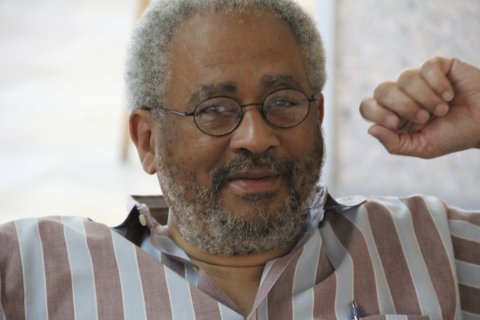Anthony Bogues is a writer, scholar and curator who has published 9 books in the fields of political thought, Caribbean intellectual history and Caribbean art. His current projects are a book titled Black Critique; a sonic project on politics and music in Jamaica during the 1970’s; co-editing some of the unpublished writings of Sylvia Wynter. and editing a volume on Haitian Art. He is the Asa Messer professor of Humanities, Professor of Africana Studies and affiliated professor in the department of History of Art and Architecture at Brown University where he is the inaugural director of the Center for the Study of Slavery and Justice. He is also a visiting professor and curator at the University of Johannesburg. Currently he convenes two major historical, art and cultural projects, In Slavery’s Wake with the National African American Museum of History and Culture and the Imagined New: Black Life After Historical Catastrophe, in South Africa. He is also a regular columnist for the South African newspaper, Mail & Guardian.
Anthony Bogues
The Caribbean intellectual tradition is a complex configuration of thought and practices. The region was born and wrought within the cauldrons of racial slavery and various 15th-century European colonial projects. It was at the heart of the making of the modern world. In the 17th and 18th centuries, two of the richest colonies in the European colonial system were Barbados and then Saint-Domingue (now known as Haiti).
A TRIBUTE TO LAMMING
As I reflected on George Lamming’s life, a remarkable life, on where he was born in the village of Carrington, of the island of his birth, Barbados, and then on his profound literary and personal commitments to the Caribbean, I reflected and thought about these islands of ours washed by the Caribbean Sea.
SYLVIA WYNTER CONSTRUCTING RADICAL CARIBBEAN THOUGHT
Today, the Caribbean theorist Sylvia Wynter is considered a seminal critical theorist. Yet many contemporary studies of her voluminous writings pay little attention to her Caribbean formation in Jamaica and her deep interactions with a Caribbean diaspora in London during the 1950s/1960s. Wynter’s Caribbean formation was embedded within a radical anti-colonial Caribbean intellectual tradition, and then merged in the 1970s with the African American radical intellectual tradition.
Jan 2024
These islands, where, as Derek Walcott reminds us, “the sea is history”. And here Walcott does not mean that it is just the Caribbean Sea that has history, rather it is the entire Atlantic Ocean. Walcott means the movements on this ocean through which these islands were born at the heart of the European colonial project. Lamming was always clear about this history.
Nov 2020
…historically, fundamental change requires the work of the radical imagination, of thinking a new form of human life is possible. The global Black Lives Matter protest has opened that space, and that is its remarkable significance for the current moment.
Black Lives Matter and the Moment of the Now
We live in an extraordinary moment. One in which many cross currents tussle
for sustained dominance. A moment in which armed white supremacy groups make
attempts to take over state legislative offices in states like Michigan. One in which
the science of contagion battles with a myopic individualism in which the wearing
of a mask for medical protection becomes a signifier for a political symbolic battle
around hegemony.

